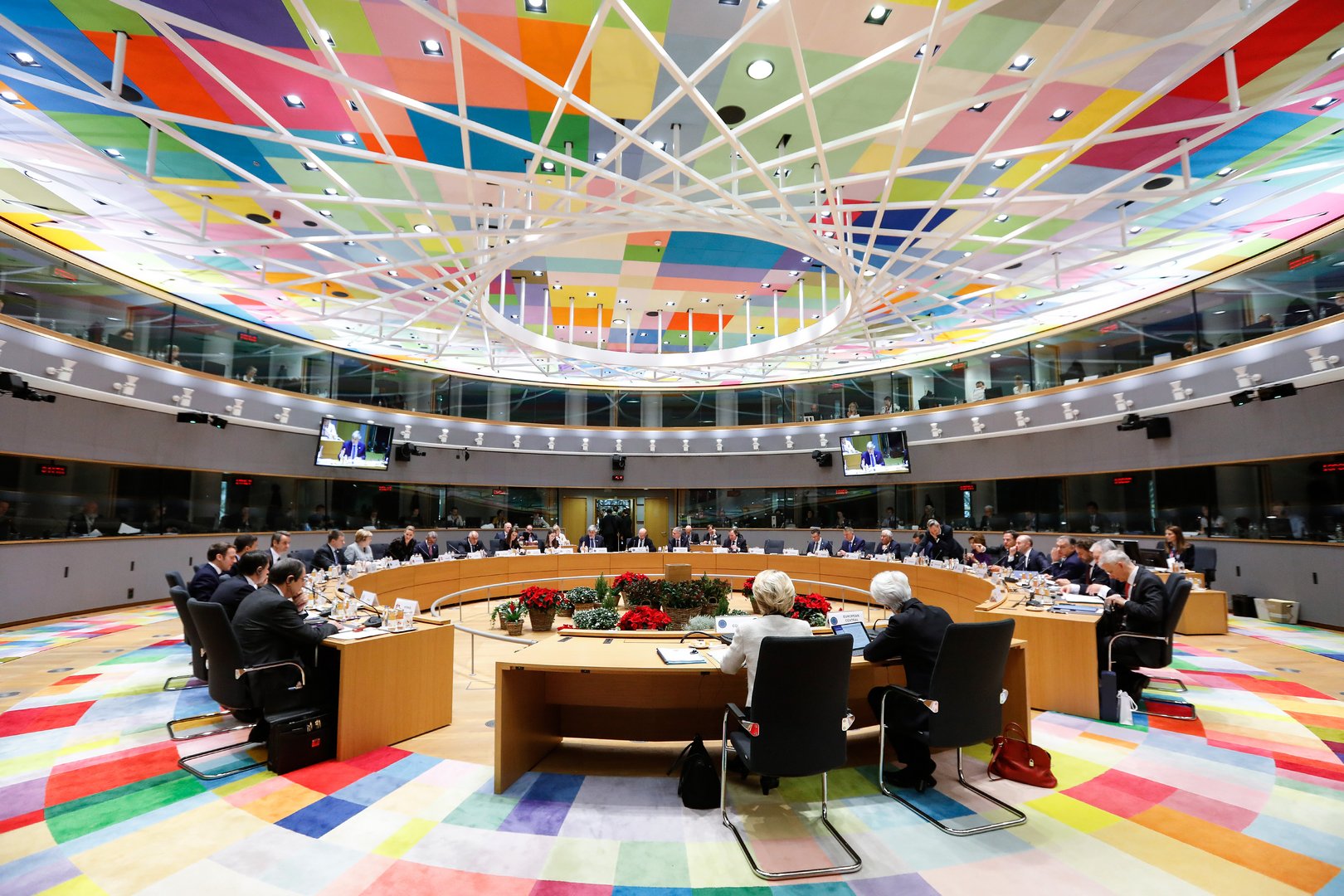Cyprus will be on its own at the upcoming Council meeting
THE eagerly-awaited European Council of March 25-26, which the Cyprus government had hoped would take punitive measures against Turkey for its incursions in the Cypriot EEZ will be focusing on improving EU-Turkey relations instead.
“The idea of sanctions could only be mentioned as a joke,” a Brussels-based source told the Sunday Mail, “at a time when the positive agenda between the EU and Turkey will be on the table.”
If any confirmation of this was required, it was provided by a Reuters report from Brussels on Thursday. Quoting four diplomats, the report said the EU “has frozen plans to blacklist more senior executives at Turkey’s state-owned Petroleum Corporation (TPAO).”
These plans had been discussed in December’s European Council, which, in its conclusions, “invited the Council to adopt additional listings based on its decision of 11 November 2019 concerning restrictive measures in view of Turkey’s unauthorised drilling activities in the Eastern Mediterranean.”
It asked the High Representative and the Commission to submit a report on “the extension of the scope of the above-mentioned decision, for consideration at the latest at the March 2021 European Council.”
In February 2020, the EU had blacklisted two TPAO executives, a decision that was welcomed in Nicosia, but although Turkey continued its unauthorised drilling activities in the Cypriot EEZ, the European Commission focused on improving relations with Turkey, which had also fallen out with France and Greece, rather than go down the path of sanctions.
The conciliatory approach towards Turkey, supported by the big member-states, including Germany produced results. In the last few months, Turkish President Tayyip Erdogan adopted a more constructive tone, he appears to have mended fences with French President Emmanuel Macron, Turkey has commenced talks with Greece over their sea disputes, and Turkish ships have not entered the Cypriot EEZ.
Even Cyprus’ government spokesman Kyriakos Koushos on Friday acknowledged that “Turkey has stopped explorations and drilling in our EEZ, stopped its aggressiveness towards Greece, even though the issue of Varosha remains.”
Meanwhile, the new US administration has also urged Brussels not to impose sanctions on Turkey as it appeared more willing to compromise, Reuters reported. US Secretary of State Antony Blinken will be in Brussels between March 22 and 25 to attend the NATO ministerial meeting but will also meet with the European Commission president.
The EU-Turkey ‘positive agenda’ will focus on three issues: immigration, which will be given more EU funding, the review and upgrading of the customs union and the EU entry visa requirements for Turkish citizens.
The main subject of discussion will be immigration. It has been five years since EU-Turkey immigration deal and Turkey will be given more funds. This time the money will be given as development aid, injected directly into the struggling Turkish economy. Over the last five years the EU had given Turkey some €6 billion as humanitarian aid to support refugees.
It will be ironic that this week’s European Council, instead of imposing sanctions on Turkey, will be discussing the amount of financial aid it will give Erdogan. This has not gone down well in Nicosia which has tried to give the impression that it can block the ‘positive agenda’.
On Friday Koushos said: “To discuss the positive agenda and for it to have a positive outcome, Turkey must prove in practice, not only its European path, but that it is willing to contribute to peace and stability in the region and respect the EU as well as its member-states.”
President Anastasiades was prepared to block the agenda said Koushos. “As long as there is no practical compliance by Turkey, it is obvious the President of the Republic would not be able to consent to this positive agenda, something he has made clear in the most emphatic way,” he said.
The tough talk was directed at the local population as the government is aware that it will be isolated if it took a stand against the positive agenda. “Now that Greece has agreed to engage in dialogue with Turkey, Cyprus will be on its own, in the unlikely event it decided to oppose the positive agenda at the Council,” said the Brussels-based source.
In a Friday teleconference with the president of the European Council and other EU leaders, Anastasiades took a different line, arguing that any discussion about the positive agenda should be put back to the Council meeting of June, so that decisions would be determined by Turkey’s behaviour on the many fronts, including Cyprus. It is unlikely his suggestion would be adopted.
The Brussels source emphasised that “the priority of the big EU countries is to bring Turkey back, under the Western sphere of influence, and they know that adoption of the positive agenda is key as is the Greece-Turkey dialogue.”
News that Greece’s foreign minister Nicos Dendias will be visiting Ankara on April 14 for talks with his Turkish counterpart Mevlut Cavusoglu, was an indication that Greece was moving ahead with efforts to resolve its maritime disputes with Turkey, regardless of Cyprus. Cavusoglu said he would discuss with Dendias the arrangement of a meeting between Erdogan and Greek prime minister Kyriakos Mitsotakis, and that he would also be visiting Athens.
Speaking in Athens on Tuesday, Dendias said he hoped talks between Greece and Turkey would lead to finding common ground to resolve “the sole bilateral dispute”, between the two countries, implying that the Cyprus problem is no longer regarded a Greece-Turkey dispute; nor do Turkey’s violations of the Cypriot EEZ appear to be a concern for Greece.
With Greece already accepting the ‘positive agenda’, and sanctions a non-starter at Thursday’s European Council, Anastasiades will have no choice but to play along, despite the tough talk his government has been resorting to for the last year or so.







Click here to change your cookie preferences